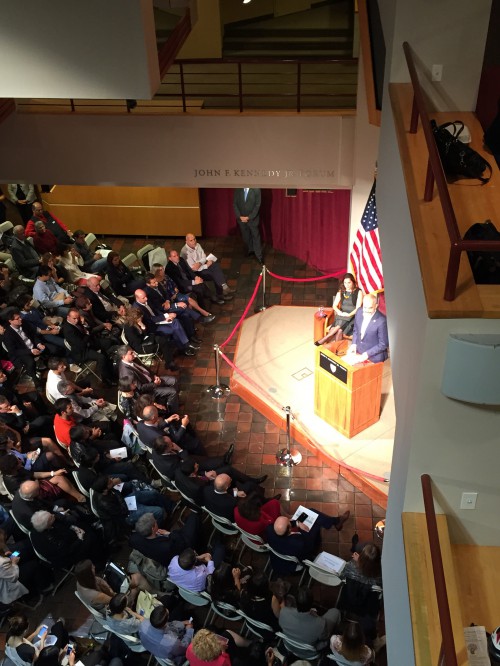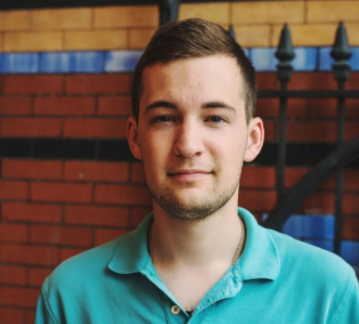Activist, athlete, artist, and politician; Albanian Prime Minister Edi Rama has had a long and varied career, and drew an audience of at least 200 last Thursday at Harvard’s John F. Kennedy Jr. Forum, where he discussed his life, his country, and its challenges.
Rama focused his address on efforts to end systemic corruption in Albania and continuing to modernize and improve his country. The crowd packed into a three-story atrium of Harvard’s John F. Kennedy School of Government. In the upper levels, the audience had to peer over railings or watch television screens to see Rama.
Born in Albania’s capital, Tirana, Rama was a painter and a basketball player in his youth. He also demonstrated against the communist regime in Albania, which lasted until 1992. He was mayor of his hometown from 2000 to 2011, and has led the Socialist Party since 2005.
As he described the challenges Albania faces, Rama emphasized the need to eliminate government corruption and restore his people’s faith in services.

“Albanians today are in a much better place today than they were 10, 20 years ago,” Rama said. “It is true that corruption and organized crime held people back for years.” The problem is more complicated than removing bad apples, he said.
Over visits to Germany, Rama observed that corruption was uncommon because it was unacceptable to most Germans. If an Albanian went to work in Germany, he or she would realize that corruption would not get them anywhere, even though it would in Albania. Conversely, a German working in Albania would probably quickly realize that corruption was possible as a way to get things done, Rama he explained.
“We have to make corruption the least attractive alternative [in Albania] and make people able to watch transparently how systems and leaders work,” Rama said.
Despite the country’s various issues, many other parts of society have improved since the fall of Communism, according to Rama.
Rama, a Roman Catholic, noted that under Communism, “religion was totally banned. Clergy were thrown in prison.” After the end of the Communist regime, “we saw religion reborn,” he said.
When an audience member asked him about ethnic discrimination in Albania, Rama replied that there is “no type of discrimination towards anyone but everyone may be harmed by the system.” It was a surprisingly definitive blanket statement, unlike any of his other assessments of the country that evening. The comment got a small, hushed reaction from some crowd members.
Rama also highlighted his country’s resources as assets, noting that Albania has plentiful water resources, but that the “theft of energy is still a big problem.” He said he hoped to tap into Albania’s potential as a tourist destination, calling it a beautiful country.
He also hopes that Albanian expatriates will be drawn back to the country with the start of “a new Albania,” one with more transparent government.
Though he is battling a new set of issues as Prime Minister than when he was demonstrating as a young painter, he made this analogy between his two passions: “As an artist, you do what you want with your brush and canvas. But as a politician, others are painting.”
If Albania has plenty left to draw on its canvas, its leader seems willing to share his brush with the people.







